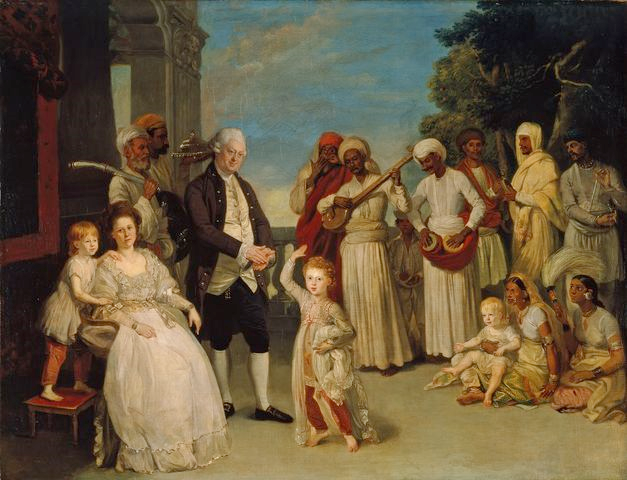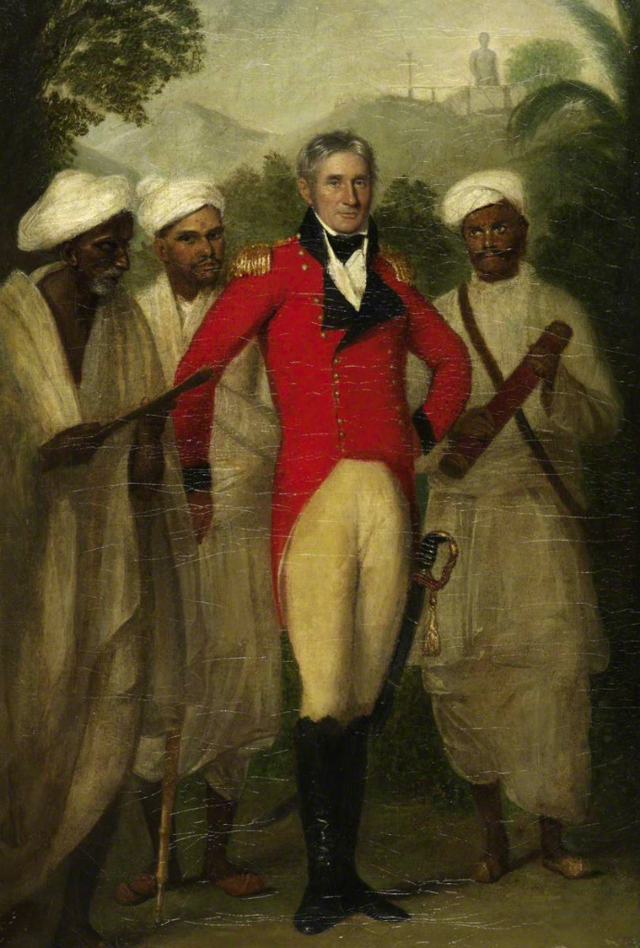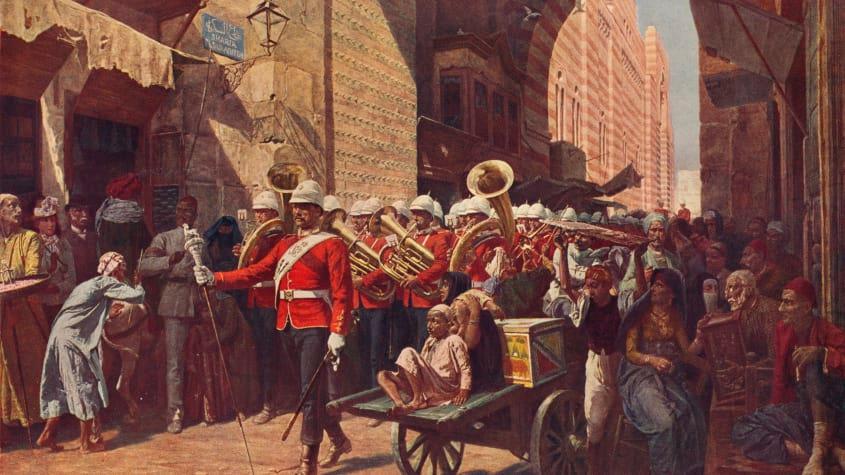Tasks: Changing Attitudes to the British Empire
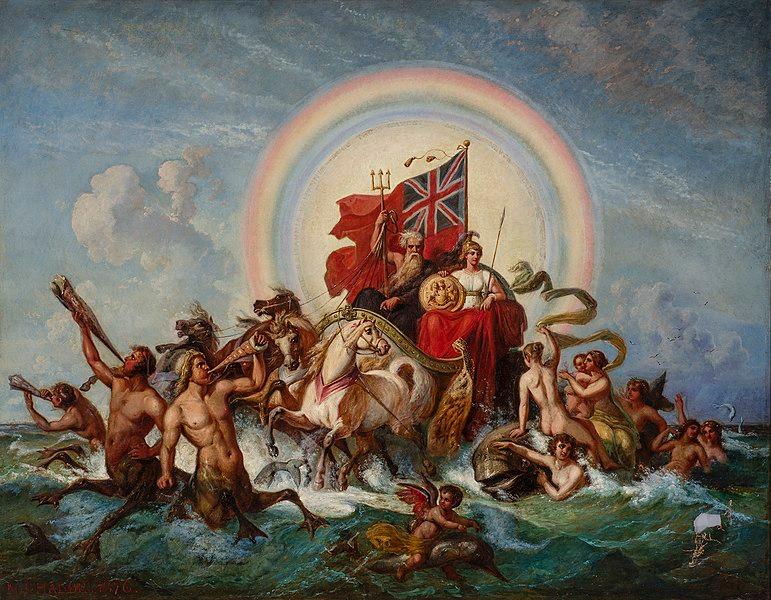
What impression of Britain does the painter want to present? Govva: Nicholas Habbe / Offentlig eie
Are you surprised by the numbers from the YouGov polls presented in the text? Why/why not?
The YouGov polls also showed that people aged over 64 are more than twice as likely to be proud of the Empire than those aged 18-24. How can you explain this difference in opinion between ages?
51% of people who voted to leave the EU in the Brexit referendum believe that Britain’s former colonies benefited from their inclusion in the Empire, compared with 22% of the voters who wanted to remain in the EU. Does this surprise you? Do you think the voters' view of the Empire influenced the way they voted in the referendum?
Do you agree that teaching the public about the negative aspects of imperialism can help reduce racism and discrimination?
Can an Empire ever be a force of good? If so, good for whom and in what way?
Some people say that History is one of the most important subjects in school. Do you agree?
Are there parts of Norwegian history that many people feel ashamed of? Can we learn from these periods in history? What can we learn?
Criticism of the Empire is dismissed by some people as a 'woke fad'. Do you think they are right, or are there other reasons why people have become more critical of the past in recent years?
'Rule Britannia' and 'Land of Hope and Glory' are two patriotic songs that have long been popular choices for British classical concerts. Every year, they are performed at the BBC’s Last Night of the Proms. This is the last of a series of classical music concerts (The Proms), that are held in London every year.
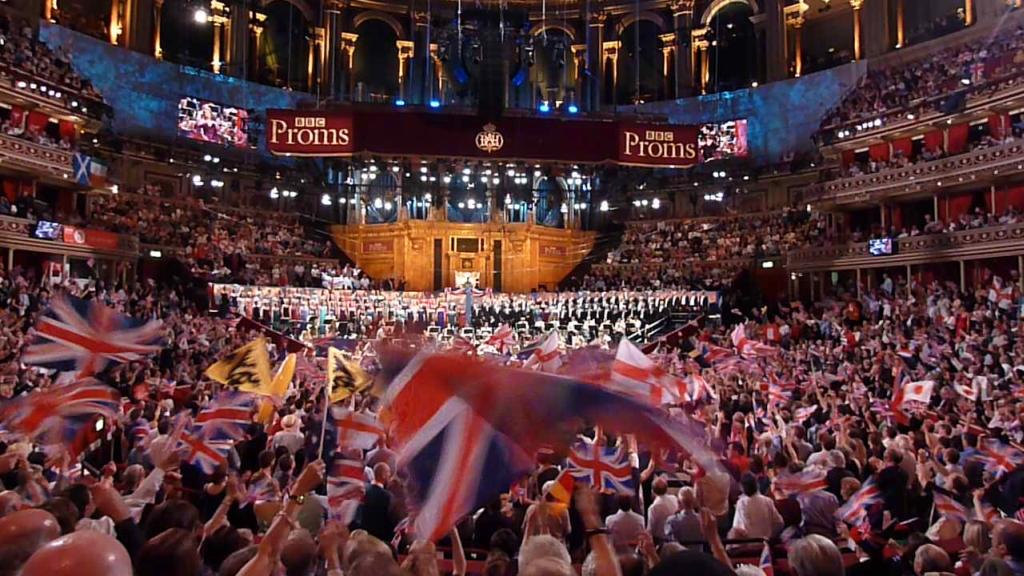
Go through the lyrics of the two songs. Also, watch one or both of the videos from Last Night of the Proms where the songs are performed.
Then move on to the discussion questions.
Link to Last Night of the Proms: 'Land of Hope and Glory'
Link to Last Night of the Proms: 'Rule Britannia' (360o)
Identify passages that express strong patriotism and that alludes to the British Empire. How is Britain and its future described in the lyrics? How are other countries described? What is your reaction to the lyrics of the songs?
Based on your understanding of the lyrics, how do you react to the patriotism expressed in the videos from Last Night of the Proms?
Do you think it is appropriate today to perform these songs that are associated with colonialism and slavery? Would a scrapping of the songs mean the same as erasing parts of British culture and history?
During the pandemic, changes were introduced due to coronavirus restrictions, and they planned to perform only the orchestral versions of the songs. This resulted in a long and heated debate in British media about whether the songs should be performed at all. Here are three statements from three different people.
Study each, and explain whether you agree or disagree with it. Give reasons for your answer.
Chi-chi Nwanoku, musician
"We find it offensive. For any conscious Black person who is aware of their history, the Empire and colonialism, for example, they will struggle to enjoy the patriotic jingoism of these songs."
Sir Keir Starmer, Labour
"Enjoying patriotic songs does not and should not be a barrier to examining our past and learning lessons from it."
Boris Johnson, Prime Minister, Conservative
"People love our traditions and our history with all its imperfections. It's crazy for us to go around trying to censor it. It's absolutely absurd, and I think we should speak out loud and proud for the UK and our history."
In the expandable box, you will find three different paintings presenting different sides of the British Empire.
Study the paintings and describe:
how the British are portrayed
how the natives are portrayed
the contrasts that are used in the paintings to bring out the differences between the colonisers and the colonised
how these paintings express British exceptionalism and patriotism.
Choose one of the tasks. Write a longer text. Use relevant sources.
Did colonisation benefit the colonised? Write a discussion text where you refer to relevant examples from history.
Over the years, several British politicians, for example Tony Blair, David Cameron, and Boris Johnson, have held up the British Empire as something in which the British should take pride. In the text box, you can read two excerpts from an article called 'Let's end the myths of Britain's imperial past' by historian Richard Gott.
Study the excerpts, then write a discussion text where you explore whether or not the British should take pride in their colonial history.
"For much of its early history, the British ruled their Empire through terror. The colonies were run as a military dictatorship, often under martial law, and the majority of colonial governors were military officers. 'Special' courts and courts martial were set up to deal with dissidents, and handed out rough and speedy injustice. Normal judicial procedures were replaced by rule through terror; resistance was crushed, rebellion suffocated. No historical or legal work deals with martial law. It means the absence of law, other than that decreed by a military governor."
"The Empire was not established, as some of the old histories liked to suggest, in virgin territory. Far from it. In some places that the British seized, they encountered resistance from local people who had lived there for centuries or, in some cases, since time began. In other regions, notably at the end of the 18th century, lands were wrenched out of the hands of other competing colonial powers that had already begun their self-imposed task of settlement. The British, as a result, were often involved in a three-sided contest. Battles for imperial survival had to be fought both with the native inhabitants and with already existing settlers – usually of French or Dutch origin.
None of this has been, during the 60-year post-colonial period since 1947, the generally accepted view of the Empire in Britain. The British understandably try to forget that their Empire was the fruit of military conquest and of brutal wars involving physical and cultural extermination."
Richard Gott: 'Let's end the myths of Britain's imperial past'. The Guardian. Link to the article on The Guardian's websit
Guoskevaš sisdoallu
The Empire used to be a source of indisputable pride in Britain, but today more and more people are questioning the country's colonial history.
